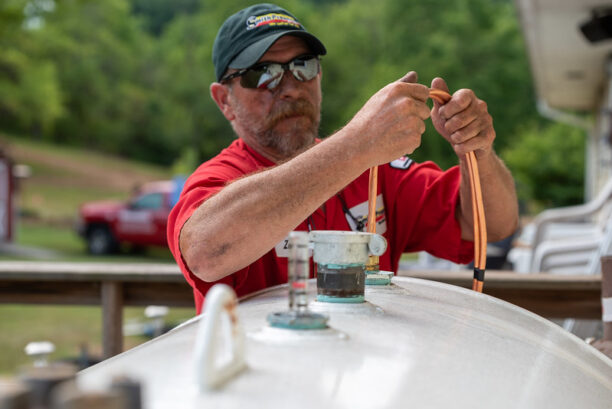Essential Tank Maintenance Tips for Propane Business Owners

Propane tanks are critical assets for propane businesses, ensuring reliable supply and service for customers. Proper maintenance of these tanks not only extends their life but also enhances operational efficiency and safety compliance. Here, we present a variety of essential maintenance tips to help propane business owners optimize their tank management practices.
Regular Inspections and Testing
Regular visual inspections and pressure testing are fundamental for detecting leaks, corrosion, or structural issues early. Implement a scheduled inspection routine based on manufacturer guidelines and industry standards to ensure tanks are in optimal condition.
Valve and Fitting Checks
Inspect valves, fittings, and connections regularly for signs of wear, damage, or leaks. Ensure that all components are tightened securely to prevent gas leaks and maintain operational safety. Replace any damaged or worn-out parts promptly with approved replacements.
Corrosion Prevention and Treatment
Protect tanks from corrosion by applying rust-resistant coatings or paints recommended for propane tanks. Monitor tanks located in corrosive environments closely and implement corrosion prevention measures such as cathodic protection systems where applicable.
Pressure Relief Valve Maintenance
Verify the functionality of pressure relief valves (PRVs) periodically to ensure they operate correctly during pressure buildup scenarios. PRVs are crucial for preventing overpressure situations that can compromise tank integrity and safety.
Emergency Response Preparedness
Develop and rehearse emergency response plans with staff to handle propane tank emergencies effectively. Ensure all employees are trained in emergency shutdown procedures, leak detection, and evacuation protocols to mitigate risks and ensure safety.
Compliance with Regulations
Stay updated with local, state, and federal regulations governing propane tank maintenance, installation, and safety standards. Adhere to regulatory requirements for tank inspections, certifications, and record-keeping to avoid penalties and ensure compliance.
Training and Education
Invest in regular training programs for employees involved in propane tank handling and maintenance. Provide ongoing education on safety protocols, operational procedures, and regulatory updates to enhance workforce competence and safety culture.
Environmental Considerations
Implement environmental best practices for propane tank management, such as spill prevention measures and proper disposal of hazardous materials. Minimize environmental impact through responsible handling and disposal practices.
Effective propane tank maintenance is essential for propane business owners to ensure operational reliability, safety compliance, and customer satisfaction. Investing in maintenance practices not only protects valuable assets but also reinforces the industry’s commitment to safety and environmental stewardship. Stay proactive and informed to uphold high standards of propane tank maintenance, safeguarding your business reputation and customers’ trust alike.














